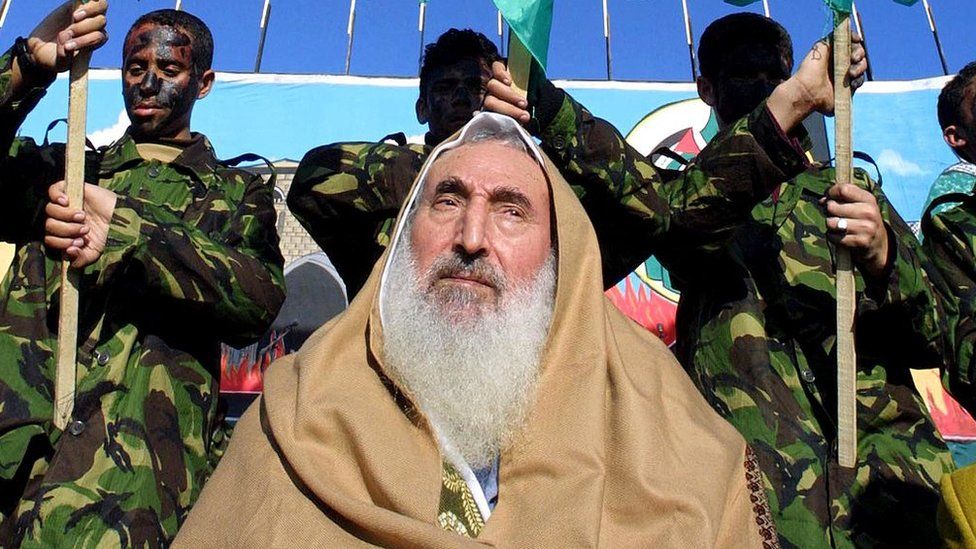Current Leadership and Structure

Hamas, a Palestinian Islamist political and militant organization, has a complex leadership structure that reflects its dual role as a political party and an armed resistance movement. Understanding this structure is crucial to comprehending its decision-making processes and strategic choices.
Key Figures in Hamas Leadership, Israel hamas leader
The current leadership of Hamas is a blend of experienced figures and younger generations, each bringing their own perspectives and expertise to the organization.
- Ismail Haniyeh: The current leader of Hamas, Haniyeh has been a prominent figure in the organization since its inception. He is considered a pragmatic leader and has been involved in numerous negotiations with Israel.
- Khaled Meshaal: A former political leader of Hamas, Meshaal played a crucial role in the organization’s development and international outreach. He is known for his strong stance against Israel and his commitment to armed resistance.
- Yahya Sinwar: The leader of Hamas in the Gaza Strip, Sinwar is a former prisoner who rose through the ranks of the organization’s military wing. He is known for his hard-line approach and his support for military action against Israel.
- Mousa Abu Marzouk: A senior Hamas official and the organization’s former chief of political affairs, Abu Marzouk is considered a key strategist and negotiator. He has played a significant role in shaping Hamas’s political and military strategies.
Internal Structure and Decision-Making Processes
Hamas operates under a decentralized structure with a complex decision-making process that involves various bodies and committees.
- The Political Bureau: This body serves as the highest decision-making body of Hamas. It is responsible for setting the organization’s overall strategy and policies.
- The Executive Committee: This committee oversees the day-to-day operations of Hamas. It includes representatives from various departments, such as the military wing, the political wing, and the social wing.
- The Shura Council: This body is responsible for providing religious guidance and advice to the organization. It comprises religious scholars and senior Hamas leaders.
- The Military Wing (Izz ad-Din al-Qassam Brigades): This is the armed wing of Hamas, responsible for conducting military operations against Israel. It operates independently but is subject to the overall direction of the Political Bureau.
Current Political and Military Strategies
Hamas’s political and military strategies are intertwined and have evolved over time.
- Political Strategy: Hamas aims to establish an independent Palestinian state with Jerusalem as its capital. It seeks to achieve this goal through a combination of armed resistance, political negotiations, and international pressure.
- Military Strategy: Hamas’s military strategy is based on the concept of “resistance” against Israel. This involves using a range of tactics, including rocket attacks, tunnel warfare, and suicide bombings.
Impact and Influence: Israel Hamas Leader

Hamas, a Palestinian Islamic resistance movement, has significantly impacted the Israeli-Palestinian conflict and shaped Palestinian society. Its actions and ideology have been both praised and condemned, and its influence continues to be felt throughout the region.
Impact on the Israeli-Palestinian Conflict
Hamas’s impact on the Israeli-Palestinian conflict is undeniable. It has been a key player in the conflict, engaging in armed struggle against Israel, advocating for Palestinian self-determination, and seeking to dismantle the state of Israel. Hamas’s actions have often led to violence and instability, contributing to the ongoing cycle of conflict. The group’s military wing, the Izz ad-Din al-Qassam Brigades, has carried out numerous attacks against Israeli targets, including suicide bombings, rocket attacks, and cross-border incursions. These attacks have resulted in civilian casualties on both sides, further exacerbating tensions and making peace negotiations more difficult.
Influence on Palestinian Society
Hamas’s influence on Palestinian society is multifaceted. It has gained significant support among Palestinians, particularly in the Gaza Strip, where it has provided social services and infrastructure, including healthcare, education, and welfare programs. This has cemented its position as a major political and social force in the Palestinian territories. However, Hamas’s ideology and actions have also been criticized. Some Palestinians have accused Hamas of suppressing dissent, imposing its own interpretation of Islamic law, and limiting individual freedoms. Hamas’s strict social policies, including restrictions on women’s rights and the enforcement of Islamic dress codes, have also been a source of controversy.
International Relations and Alliances
Hamas’s international relations are complex and often fraught with tensions. The group has been designated as a terrorist organization by many countries, including the United States, Canada, and the European Union. This designation has made it difficult for Hamas to operate internationally and has limited its access to funding and support. However, Hamas maintains close ties with other Islamic groups and has received support from countries like Iran and Qatar. The group’s international alliances have provided it with a degree of political and military support, but they have also made it a target of international scrutiny and sanctions.
Israel hamas leader – The conflict between Israel and Hamas is a complex and sensitive issue, with both sides claiming their own narratives. Amidst the tension, it’s easy to forget the simple joys of life, like a leisurely picnic in the park. A folding picnic chair with side table can provide a comfortable spot to enjoy a meal and reflect on the need for peace and understanding between the two factions.
Perhaps, in a moment of shared tranquility, a glimmer of hope for a more peaceful future might emerge.
The conflict between Israel and Hamas leaders has dominated headlines, a stark reminder of the complexities of the region. It’s a world away from the whimsical charm of the beetlejuice beetlejuice popcorn buckets , those iconic movie-themed souvenirs that once brought joy to countless moviegoers.
But even amidst the tension, it’s a reminder that even the most serious issues can be contrasted with moments of lighthearted fun, like the nostalgic memory of those bright, quirky popcorn buckets. Ultimately, the conflict in Israel remains a complex issue, requiring thoughtful diplomacy and a commitment to peace.
